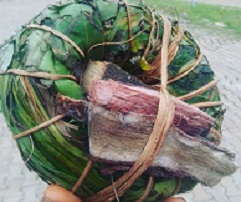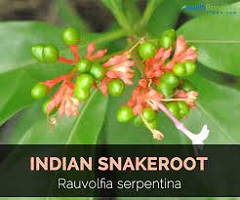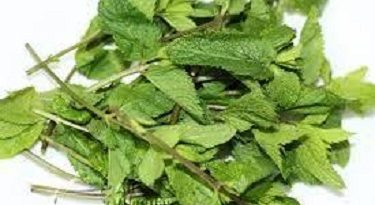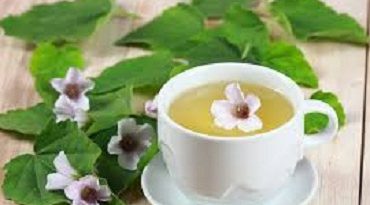Aju Mbaise Soup for Healing, Flat Tummy & Weight Loss
Aju Mbaise Soup for Healing, Flat Tummy & Weight Loss: Does It Work? Please watch to confirm >>>
A joyful meal for nursing mothers: Health Benefits and Side Effects of Aju Mbaise
Herbs are used to cure a variety of disorders and have been shown to help people lose weight and live longer. We’ll discuss Aju Mbaise Soup for Healing today.
Traditionally, an ‘ Aju Mbaise Soup for Healing ‘ is usually given to nursing women to assist them to reclaim nutrients lost following childbirth. The combination is also said to help with weight loss and fertility.
Related >>>
- 23 Health Benefits of Aju Mbaise | Side Effects
- Aju Mbaise Healing Soup for Nursing Mothers [Video]
- Aju Mbaise: How to Get a Flat Stomach |Lose Weight|Look good
- Aju Mbaise Herbal Slimming Tea |Weight Loss |Fertility And the Side Effects
- Aju Mbaise Traditional Medicine: Uses, Health Benefits & Side Effects
- Aju Mbaise Herbal Tea for Weight Loss | Flat Tummy
- Aju Mbaise for Fertility, Tummy Fat Burner & Weight Loss
About the Healing Soup Aju Mbaise ~ Aju Mbaise Soup for Healing
Aju Mbaise is a fat-burning herbal blend that includes ginger roots, traditional leaves, uziza seeds, uda, and the bark of a unique medicinal tree found in Mbaise.
The mixture is coiled and wrapped together, earning the Igbo term Aju (Meaning wrap). It has a lovely scent and a bitter alkaline taste.
This African brew contains bioactive components that are thought to be responsible for the antibacterial properties found.
Adequate amounts of the decoction can help nursing moms meet the Recommended Nutrient Intake (RNI) for minerals by contributing to their macro-and micro-mineral intake.
It is a traditional method of trimming down post-pregnancy fat by Mbaise women when cooked with mmiri uda, uziza, and ehuru for weight loss, which gives the basis for their folklore use by nursing moms.
Types of Aju Mbaise
There are different categories of this mixture, including:
- Aju Mbaise for weight loss and flat tummy
- Aju Mbaise for fertility boost
- Another one for flushing out infections
- Aju Mbaise for the reduction of tumors or for fibroid treatment
- Aju Mbaise for diabetes, malaria, cancer, and ovarian cysts
However, our focus is on Aju Mbaise soup for healing, flat tummy & weight loss: does it work?
Aju Mbaise Soup for Healing – How to Make Aju Mbaise for Flat Tummy
For new moms, an Aju Mbaise herb is cooked in the same way as pepper soup.
This Aju soup is comparable to any pepper soup, including goat meat pepper soup, catfish pepper soup, and others.
Whether fresh or dried, this plant is highly effective and retains all of its nutrients. If desired, folks in other categories can also have this soup.
How to prepare Aju Mbaise for weight loss ~ Aju Mbaise Soup for Healing
Whatever method of weight loss you choose, firstly you need to cleanse the body of toxins. Otherwise, all efforts can be in vain, which will lead to disappointment
For Aju Mbaise preparation, you should:
- Firstly, wash the product well under running water.
- Secondly, put it in a large saucepan and pour it over with water to cover it completely.
- Thirdly, add the spices to your taste.
- After that, cook on low heat until the liquid turns golden.
- Lastly, allow cooling and drink throughout the day. It is advisable to cook a new drink every day.
And now enjoy the tasty drink!
- The taste of Aju Mbaise ~ Aju Mbaise Soup for Healing
Aju Mbaise has a distinct flavor. The peppersoup Aju Mbaise has a harsh, alkaline flavor and a distinct scent. The leaves can be steeped as tea or used to make a peppersoup.
How to cook Aju Mbaise Soup for Healing: Aju Mbaise peppersoup/Aju Mbaise Soup Recipe for Healing
Aju Mbaise is made using fresh fish, prekese seeds, uda, ehuru seeds, and various fish flavors (stockfish and smoked fish).
Where to Purchase/Identification>>> Everything was stated in the video above. Kindly watch
Aju Mbaise is packaged and preserved in wrapped leaves. The leaves and tree barks are strung together to form a wrap known as “aju” in Igbo.
What’s the deal with the wrap? What’s in the wrap?
Ginger roots, traditional leaves, uziza seeds, uda, and the bark of a rare medicinal tree found in Mbaise make up Aju Mbaise.
Adding Uhiokirihio seeds/Prekese seeds
Prekese seeds, also known as whole spice, are cooked with the Aju Mbaise leaves. It’s also a fat-burning spice that’s used to cut down on starch in cooked foods.
Slicing the seeds
Because of the impacts of Uhiokirihio, it is rarely cooked with the soup. Only about a quarter of the wings are cut and added to the soup pot.
Before adding the condiments, allow boiling for 10 minutes.
A delicious fish flavor – As a protein source, the soup is made using fresh/dried fish, stock, and smoked fish.
Stocking up on fish – Stockfish is used to provide flavor.
Spice additions ~ To give the peppersoup additional flavor, a light seasoning is added.
Before serving, Aju Mbaise
The Uhiokirihio (whole spice) and Aju Mbaise wrap are removed from the saucepan just before serving the peppersoup. The wrap could be used to make tea or a second pot of Aju Mbaise soup.
It’s all set to go. Ready to be enjoyed
Here’s a serving of the light, watery Aju Mbaise pepper soup with fresh fish.
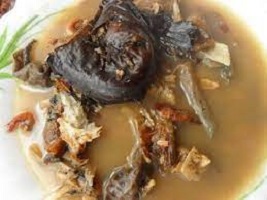
Aju Mbaise’s Health Benefits: Health Benefits of Aju Mbaise ~ Aju Mbaise Soup for Healing
Lochia is the term for the blood that appears after childbirth. It’s a form of discharge that looks and feels like your menstrual period, and it usually lasts four to six weeks after birth.
It contains blood, uterine lining fragments, mucus, and white blood cells. The herb Aju Mbaise aids in the removal of stale and postpartum blood from the womb, as well as excess water and other postnatal elements.
This will assist you in swiftly returning your stomach to its original shape and size.
- Detoxification ~ Aju Mbaise Soup for Healing
Detoxification, which has been practiced for centuries by cultures all over the world, including Ayurvedic and Chinese health systems, is about resting, purifying, and nourishing the body from the inside out.
Detoxifying can help protect you from disease and refresh your ability to maintain maximum health by removing and eliminating pollutants and then nourishing your body with healthy nutrients.
Aju Mbaise herbal mixture has a good detoxification effect: it can be taken by a woman who has recently miscarried to clear up dead particles.
- Boost the production of breast milk ~ Aju Mbaise Soup for Healing
Milk production does not begin as a supply-and-demand situation. The endocrine control system is responsible for milk supply during pregnancy and the first few days after delivery.
Mom will begin producing colostrum approximately midway through pregnancy (Lactogenesis I), and her milk will increase in volume (Lactogenesis II) around 30-40 hours after birth, as long as the necessary hormones are in place.
When a person is pregnant or lactating, the Aju Mbaise herbal mixture boosts prolactin, a hormone that tells the body to manufacture breast milk.
- Weight loss and stomach flattening ~ Aju Mbaise Soup for Healing
Aju Mbaise might help you lose weight and get a flat stomach. Even a small weight loss of 5 to 10% of your total body weight can result in health benefits such as lower blood pressure, lower cholesterol, and lower blood sugar levels.
If you weigh 200 pounds, a 5% weight loss equals 10 pounds, bringing your total weight down to 190 pounds.
This native herb has been proved to help people lose weight and flatten their stomachs, especially after giving birth.
- Fertility Enhancer ~ Aju Mbaise Soup for Healing
Aju Mbaise for fertility is also a natural fertility enhancer because it removes dead cells from the body. Women who are experiencing infertility may benefit from cleaning to ensure that their bodies are fully prepared to conceive. After cleansing, a woman’s egg quality improves, and the womb environment becomes much more conducive to conception.
Other benefits of Aju Mbaise include:
- purifying the body from parasites and slagging;
- purifying the blood;
- regulating the female cycle/menstruation
- is great for diabetics.
- And most importantly, this fat-burning agent has a therapeutic effect.
Aju Mbaise Side Effects
- Effect on the nervous system
Some plant alkaloids have the ability to impact the central nervous system, which includes nerve cells in the brain and spinal cord that govern many direct body processes as well as male and female behavior.
They could also have an impact on the autonomic nerve system, which controls internal organs, heartbeat, circulation, and breathing.
- Light-headedness
Users have reported feeling light-headed after consuming too much Aju Mbaise. A sense of faintness, dizziness, or being on the verge of passing out is known as lightheadedness. It can occur in conjunction with vertigo, a condition that impairs balance and causes a person to feel as if they or their surroundings are spinning.
Although lightheadedness and vertigo have similar symptoms, they are caused by different things.
- Appetite Suppression
When you have a diminished urge to eat, you have a decreased appetite. It’s sometimes called a loss of appetite or a bad appetite. Anorexia is the medical name for this. The intake of Aju Mbaise can produce a decrease in appetite. This is due to its capacity to keep hunger at bay.
- Heartburn
Heartburn or stomach trouble is another possible minor adverse effect of Aju Mbaise tea, similar to how you might feel after eating chilies or other spicy foods.
Acid reflux causes heartburn, a burning sensation in the throat. Heartburn causes chest pain, a burning sensation in the throat, and difficulty swallowing.
- Allergy
If you are allergic to any of the herbs in the Aju Mbaise basket, your body will react. Dietary allergies are caused by the immune system’s reactivity to food proteins. Depending on the immunological players engaged, there are many types of allergic reactions.
Side Effect of Aju Mbaise on Babies
Drinking too much while on exclusive breastfeeding slims down the baby and causes drowsiness. Recommended for mothers whose babies are taking solids and milk. Not to be taken by pregnant women.
DISCLAIMER: This material is only designed to provide general information and does not address specific circumstances.
It is not a substitute for professional assistance or guidance, and it should not be used to make any judgments.
Any action you take in response to the information in this article is solely at your own risk and responsibility!
Sources:
- 5 Health Benefits of Aju Mbaise (2021, fabwoman.ng)
- Aju Mbaise for flat tummy and weight loss: does it work? https://www.legit.ng
- Ajumbaise: 7 days body detox drink for belly fat and weight loss (2019, ajumbaiseherbal.com)
- Aju Mbaise for Weightloss for Mums: Benefits, Preparation & Precautions (2018, motherhoodng.com)
- Aju Mbaise: Uses, Health Benefits and Side Effects (2020, healthguide.ng)
- Antibacterial activity, phytochemical properties, and mineral Content of “Aju Mbaise” decoction: A liquid extract administered to nursing mothers (2018, ajol.info)
- Health Benefits and Side Effects of Aju Mbaise (publichealth.com.ng)
- Health Benefits and Side Effects of Aju Mbaise (2020, nimedhealth.com.ng)
- How to lose pregnancy weight using Aju Mbaise (2019, fabmumng.com)
- How To Prepare Aju Mbaise Herb For New Moms | Mmiri Ogwu (2018, adasrecipes.com)
- Look good | Lose weight with Aju Mbaise | Flat tummy tea (2018, Besthomediet.com)
- Nutritional Composition of Aju Mbaise Herbal Cocktail (2020, researchgate.net)
Aju from Mbaise: Uses, Health Benefits and Side Effects
Health Benefits of Aju from Mbaise
Aju from Mbaise is an herbal blend consisting of the bark, leaves, and roots of five different plants, including ginger, uda (Negro pepper), and uziza.
Traditionally used in the preparation of pepper soup and various medicinal concoctions, it is sought after for its numerous health benefits.
The term “Aju from Mbaise” translates to “wrap from Mbaise,” referring to its origin in the village of Mbaise, Imo state. Despite its regional roots, the herb has gained popularity nationwide due to its acclaimed health properties.
Particularly favored by new mothers and those desiring weight loss, Aju from Mbaise is now commonly packaged as “slim tea” for convenient consumption.
Presented in wrapped leaves secured with small sticks, each component of Aju from Mbaise offers unique advantages.
Boiled without unwrapping, the herb-infused water is often enhanced with additional ingredients for taste.
While the brew carries a bitter-sharp flavor from its spices, its aroma is appealing. It can be enjoyed alone as a tea or used in cooking, though individuals seeking rapid results, such as those aiming to slim down, often prefer drinking the tea directly.
Health Benefits of Aju from Mbaise
Nutritional and Phytochemical Properties of Aju from Mbaise
In a 2019 study, researchers investigated the phytochemical composition of the ethanol extract of Aju from the Mbaise herbal mixture.
The findings revealed a significant presence of various phytochemicals in the herbal decoction.
The analysis identified alkaloids (8.69%), flavonoids (19.10%), glycosides (6.86%), hydrogen cyanide (0.92%), phenols (31.56%), saponins (0.83%), steroids (0.94%), tannins (16.80%), and terpenoids (14.31%).
In this article, we’ll explore some of the health benefits associated with Aju from Mbaise, shedding light on the advantages you can gain from incorporating this herb into your regimen.
Post-pregnancy Benefits
Due to its advantages for postpartum recovery, Aju from Mbaise is well-liked by new mothers. Primarily, it aids in replenishing essential nutrients depleted during pregnancy.
Additionally, it facilitates the reduction of postpartum abdominal bloating, restoring the stomach to its pre-pregnancy size.
Furthermore, Aju from Mbaise supports lactation by promoting breast milk production and assists in regulating the menstrual cycle post-delivery.
Moreover, a medical study conducted in 2016 revealed another potential health advantage of Aju from Mbaise.
The study findings indicated that the herbal decoction exhibited inhibitory effects on the proliferation of harmful bacteria in lactating mothers, further highlighting its therapeutic potential.
2. Weight Loss
Aju from Mbaise proves highly effective in aiding weight loss, particularly in reducing abdominal fat. Its mechanism involves breaking down fats into acids, facilitating their elimination from the body.
Additionally, it promotes metabolism, enabling the body to efficiently burn fat. These benefits extend to both women and men, making Aju from Mbaise a valuable asset in achieving healthy weight management goals.
3. Balance Menstrual Cycle
Women experiencing irregularities in their menstrual cycle often turn to Aju from Mbaise to restore balance and promote regularity, resulting in a more predictable and consistent menstrual flow.
Additionally, it alleviates menstrual discomfort, offering relief to those who suffer from menstrual pain.
4. Womb Flusher
Women utilize Aju from Mbaise to cleanse their wombs, expelling residual blood, fluids, and any other debris accumulated post-childbirth.
This practice not only diminishes the size of the womb but also aids in abdominal reduction.
Furthermore, women who have experienced miscarriages or abortions utilize Aju from Mbaise to purge their wombs, fostering uterine health and mitigating potential complications in future pregnancies.
5. Tackle Fibroid and Tumor
Women also consume Aju from Mbaise herb to address early-stage fibroids or tumors, aiming to reduce their size and alleviate the discomfort caused by their growth.
6. Fertility Potion
Aju from Mbaise also enhances fertility in women by promoting uterine dilation and purification, rendering it conducive and prepared for pregnancy.
Side Effects of Aju from Mbaise
The risks associated with consuming Aju from Mbaise are generally minimal, but caution is advised.
Pregnant women are advised to avoid the herb due to its potential to increase the risk of miscarriage and birth defects in babies.
Nursing mothers should also moderate their intake as it may impact the baby’s weight.
Common side effects include light-headedness or dizziness when consumed excessively, as well as increased hunger.
Overall, it’s important to consume the herb in moderation to mitigate any potential adverse effects.
What is the composition of Aju from Mbaise?
Aju from Mbaise is a blend comprising ginger roots, traditional leaves, uziza seeds, uda, and the bark of a specific medicinal tree indigenous to Mbaise.
Uhiokirihio, or whole spice, is incorporated with the Aju from Mbaise leaves. This combination not only enhances the flavor but also acts as a fat-burning spice, targeting the reduction of starch in cooked meals.
How do you use dried aju from Mbaise?
Make sure to obtain the dried ingredients and blend them at the market.
Take one aju from Mbaise, wash it thoroughly without untying it, and place it in a pot along with the attached sticks.
Add one full spoon of the blended spices to the pot, then pour in enough water to cover the aju. Cook for approximately 30 minutes, then remove from heat.
What do dehydrating herbs do?
The cell walls bring out the flavor. Dried herbs can be stored successfully for up to one year in a cool, dry, dark place.
Drying herbs at too high a temperature can result in flavor loss. The best time to harvest herbs for drying is before the flowers first open (the bursting bud stage).
What are the benefits of spice-infused water?
Here are a few of the benefits of spices when consumed in the morning, shared by Sharanya:
- Drinking spices soaked in water can prevent the onset of inflammation in the body.
- They have anti-inflammatory properties and are antioxidants for the body.
- They help boost metabolism.
- Improve digestion.
